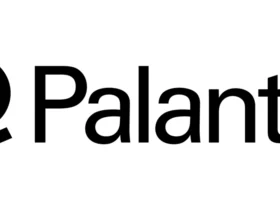Quantum Computing: The Next Tech Revolution Is Already Underway
While artificial intelligence (AI) continues to grab headlines, quantum computing is rapidly emerging as one of the most exciting frontiers in technology. Both established tech giants and ambitious startups are pouring resources into developing quantum systems that could transform industries like climate modeling, medical research, and advanced materials development.
According to McKinsey & Company, the global quantum computing market could hit a staggering $2 trillion by 2035. Investors looking to stay ahead of the curve are taking note—and aiming to enter the space early before the sector fully matures.
The Smart Way to Invest Early in Quantum Computing
Jumping into early-stage quantum startups may sound exciting, but it’s also incredibly risky. Many of these companies are years away from profitability—and there’s no clear way to predict which ones will succeed.
Instead, savvy investors are looking to major tech firms that are already building quantum solutions while maintaining strong, diversified revenue streams. Two standout options? Microsoft and Alphabet. These companies are not only pushing boundaries in quantum computing—they’re also well-established, financially sound, and actively integrating quantum systems into their cloud ecosystems.
Microsoft’s Quantum Leap: Majorana and Azure Quantum
Microsoft (NASDAQ: MSFT) is making waves with its innovative Majorana 1 processor—a significant step forward in quantum hardware. Unlike traditional computing elements, Majorana is based on a topological superconductor—an exotic form of matter that isn’t a solid, liquid, or gas.
The benefit? This topoconductor can generate highly stable qubits, the building blocks of quantum computing. Microsoft believes this approach could one day support a million qubits on a single chip, massively improving the scale and efficiency of quantum machines.
But Microsoft isn’t only focused on theoretical breakthroughs. Through its Azure Quantum platform, the company offers developers and researchers hands-on access to real quantum systems built by partners like IonQ and Rigetti. As the second-largest player in cloud computing with 21% market share, Microsoft is well-positioned to integrate quantum computing into mainstream enterprise workflows over the next decade.
Alphabet’s Edge: Error Reduction and DeepMind Synergy
Alphabet (NASDAQ: GOOGL, GOOG) is also deep into quantum development with its Willow processor, which debuted recently. One of Willow’s standout features is its ability to significantly reduce computational errors, a long-standing challenge in quantum computing.
Alphabet claims that Willow can “reduce errors exponentially”, making it one of the most reliable platforms for quantum tasks to date. Like Microsoft, Alphabet is weaving its quantum infrastructure into its cloud services. With 12% of the global cloud market, Google Cloud represents a powerful launchpad for Quantum-Computing-as-a-Service (QCaaS).
A potential long-term advantage? Alphabet’s Google DeepMind team—an AI research powerhouse—could eventually collaborate with its quantum hardware division. This synergy between AI and quantum computing might unlock innovations in optimization, problem-solving, and advanced simulations that other companies simply can’t replicate.
Financial Muscle: Long-Term Vision Backed by Billions
Quantum computing is not a short-term play. It requires patience, capital, and cutting-edge innovation. Fortunately, both Microsoft and Alphabet are incredibly well-funded.
- Microsoft holds approximately $79.6 billion in cash and generates $55 billion in free cash flow.
- Alphabet boasts $95 billion in cash reserves with $50 billion in free cash flow.
These deep pockets enable both companies to make long-term bets, weather market fluctuations, and continue investing in groundbreaking research.
Valuation Comparison: Alphabet May Offer More Value
For investors weighing the two stocks, valuation is a key factor. Microsoft currently trades at a price-to-earnings (P/E) ratio of about 39, while Alphabet sits at a more modest P/E of 21. Given the tech industry’s average P/E of 36, Alphabet could represent a more attractive entry point—especially for value-focused investors seeking quantum exposure.
Quantum Plus AI: A Powerful Combo for the Future
One of the most compelling reasons to invest in either of these giants? They’re not just quantum leaders—they’re also at the forefront of the AI revolution. Owning Microsoft or Alphabet stock offers dual exposure to two of the biggest tech trends of the next decade.
From enterprise AI to QCaaS, these companies are building robust ecosystems that will likely intersect and scale in unimaginable ways. While smaller quantum startups may offer short-term hype, Alphabet and Microsoft are best suited to lead the quantum era with real-world applications and consistent growth.
The Bottom Line: Position Yourself Early with Industry Leaders
Quantum computing is still in its early stages, but it’s no longer science fiction. Microsoft and Alphabet are demonstrating real progress with tangible applications—and they’re doing so with the resources, reach, and resilience that few others can match.
If you’re considering an early investment in this emerging sector, these two tech titans are among the safest, smartest bets available today.







Leave a Reply